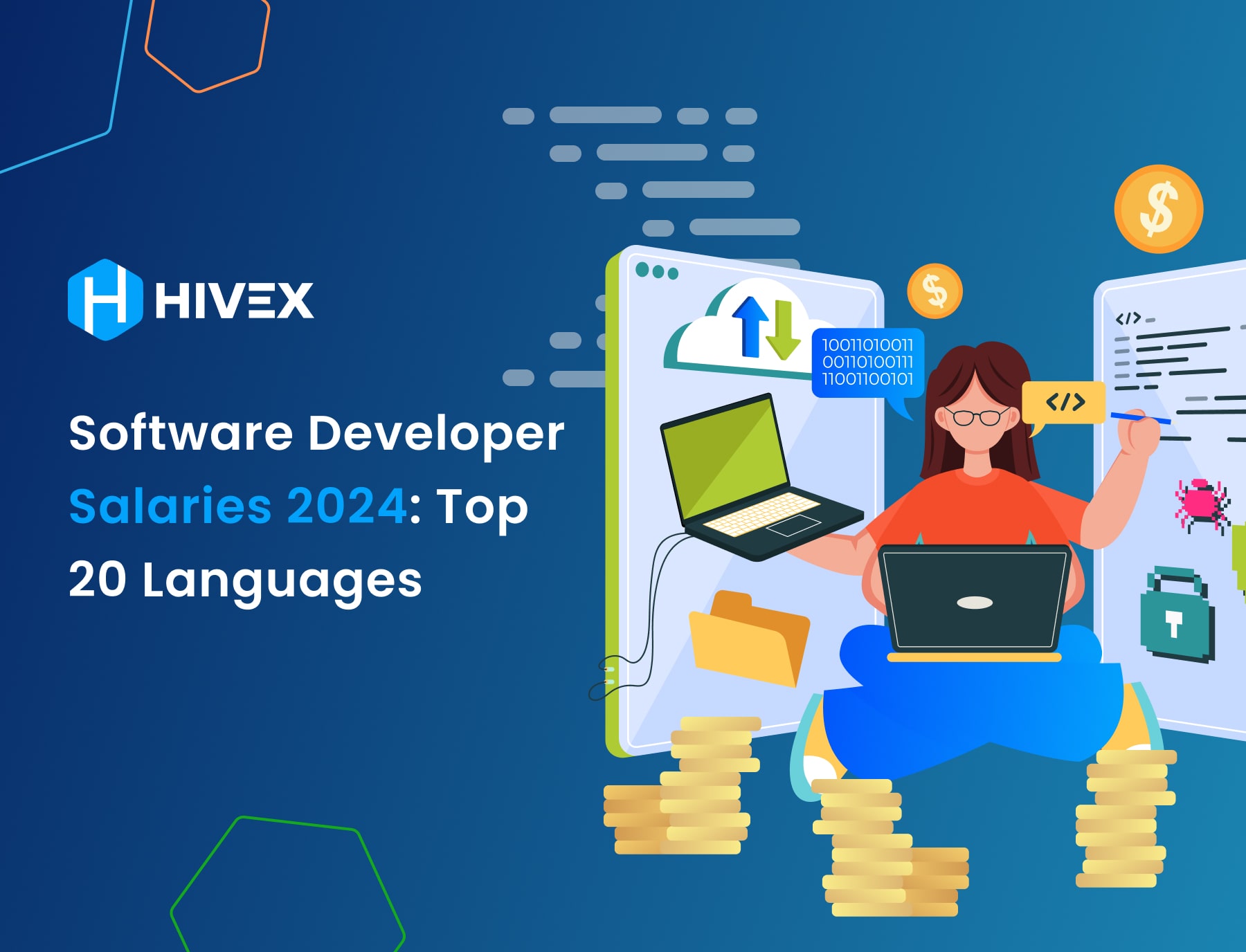The Guide to Hiring iOS Developers (+ Interview Tips)
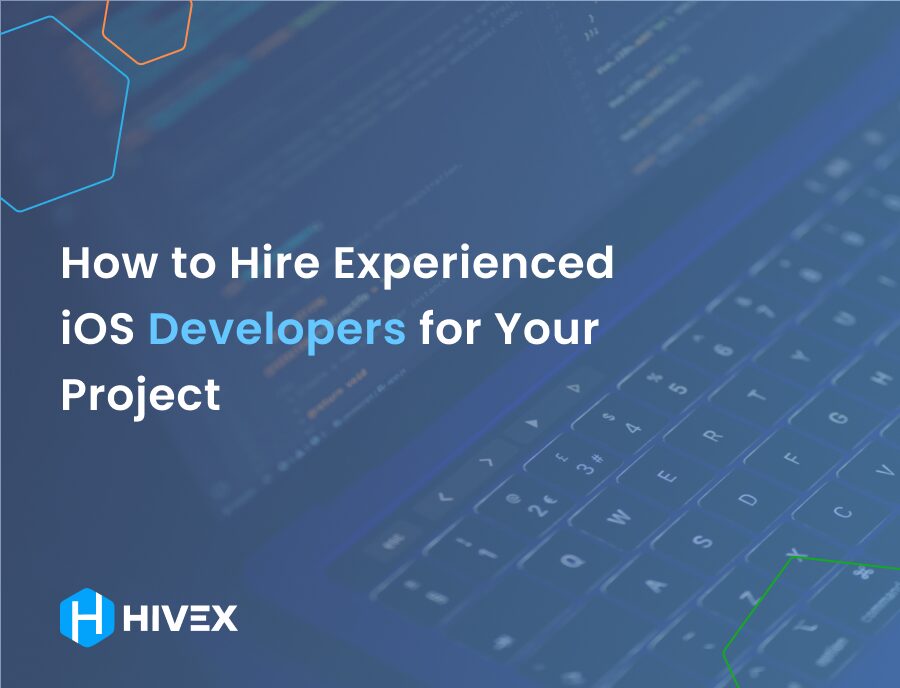
The demand for iOS developers continues to rise, and hiring the right one can be challenging.
What should you look for in a candidate?
Imagine a smooth, bug-free app that users love.
That’s the goal.
In this guide, we’ll help you identify top talent, avoid common pitfalls, and ask the right questions during interviews.
Ready to build your dream team? Let’s dive in.
Table of Contents
The Concept iOS Development
iOS development has gained significant popularity due to the substantial market share of iPhones and iPads. Having a dedicated iOS app can give your business a competitive edge and unlock a whole new customer base.
iOS apps provide a seamless user experience, consistent performance, and enhanced security measures, which are crucial for businesses dealing with sensitive user data.
One of the key reasons why iOS engineering is so important, including the ever-growing number of users who own Apple devices. Having millions of iPhones and iPads available worldwide makes it possible for businesses to tap into this market and reach a wider audience by creating an iOS app.
Businesses can establish a strong presence in the mobile app market by catering to iOS users so they will have greater visibility of their brand.
iOS apps are also known for their high-quality user experience due to Apple’s strict review guidelines that make sure that only well-designed and functional apps are allowed to enter the App Store. iOS users are therefore used to apps that have strong visual appeal, are intuitive to use, and are easy to navigate.
By investing in iPhone app development, businesses can create an app that not only meets these standards but also exceeds user expectations, leading to increased user engagement and customer satisfaction.

Consistent performance is another crucial aspect of the mobile app development. Apple’s closed ecosystem allows developers to optimize their apps specifically for iOS devices, resulting in better performance and faster load times.
This ensures users have a smooth and seamless experience while using the app, without lag or glitches. In contrast, developing apps for multiple platforms can be challenging, as it requires adapting them to different operating systems and device specifications.
Security is a top priority for businesses, especially those dealing with sensitive user data. iOS ecosystem offers enhanced security measures to protect user information and prevent unauthorized access. Apple’s stringent security protocols, such as app sandboxing and data encryption, provide an added layer of protection for both businesses and users.
This level of security is particularly important in industries like finance, healthcare, and e-commerce, where data privacy and confidentiality are paramount.
iOS mobile development is of great importance in today’s digital landscape. By investing in iOS apps, businesses can leverage the large user base of Apple devices, provide a high-quality user experience, ensure consistent performance, and enhance security measures.
Whether it’s reaching new customers, increasing brand visibility, or protecting sensitive user data, iOS development offers numerous benefits for businesses looking to stay competitive in the mobile app market.
Benefits of iOS Development
Investing in iOS application development offers several key benefits.
One advantage is the high-quality user interface and design provided by iOS devices.
Apple’s stringent app review process ensures that only well-coded and polished apps make their way to the App Store. This quality control enhances user satisfaction and helps maintain a positive brand image.
iOS devices are renowned for their strong security features.
Apple has built a reputation for prioritizing user privacy and data security. iOS devices are equipped with advanced security measures, such as secure boot, sandboxing, and data encryption, to protect sensitive user information.
This level of security instills trust and confidence among iOS users, making them more likely to engage with apps and share their personal information.
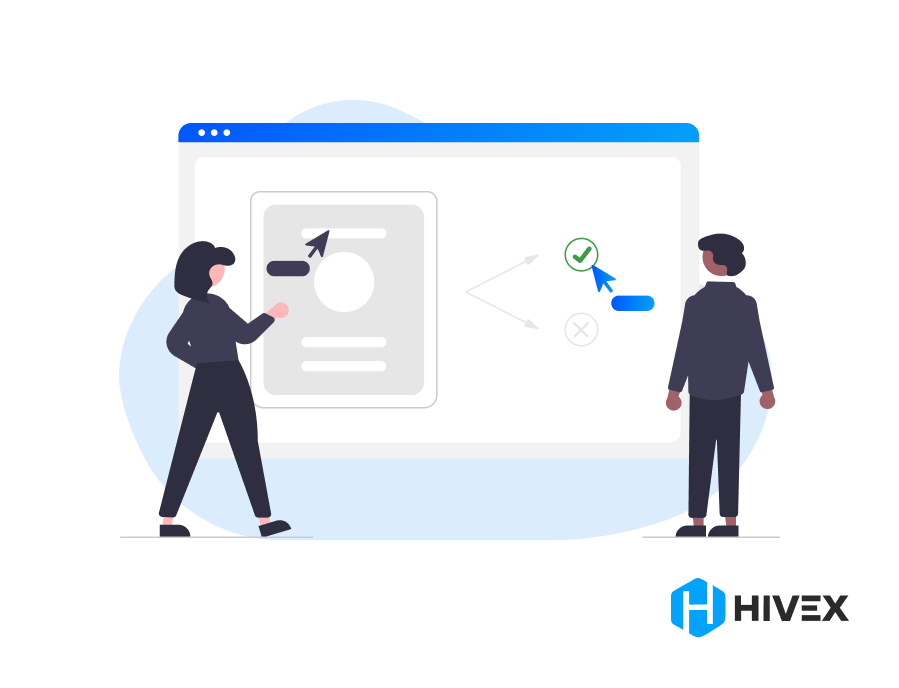
iOS devices have always been at the forefront of user interface and design. The sleek and intuitive interface of iOS devices, combined with the attention to detail in their app design, creates a seamless and enjoyable user experience.
From the smooth animations to the carefully crafted icons, every aspect of the iOS interface is designed to be visually appealing and user-friendly.
The Development of iOS Apps
Apple’s app review process is one of the most rigorous in the industry. Before an app is approved for the App Store, it undergoes a thorough evaluation to ensure it meets Apple’s strict guidelines.
This process helps weed out poorly coded or buggy apps, ensuring that only high-quality and reliable apps are available to iOS users. As a result, users can trust that the apps they download from the App Store will work as intended and provide a positive user experience.
Studies have shown that iOS users are more likely to make in-app purchases and spend more on apps compared to users of other platforms. This makes iOS a profitable platform for businesses, as they have the potential to generate higher revenue from their iOS apps.
Overall, investing in iOS application development offers numerous benefits. From the high-quality user interface and design to the potential for increased revenue and strong security features, iOS provides a platform that is both profitable for businesses and satisfying for users.
Whether you are a business looking to expand your reach or a developer aiming to create a polished and reliable app, iOS mobile applications are a valuable investment.
iOS Development Languages
When hiring iOS developers, it’s essential to understand the different programming languages commonly used for iOS app development. Apple’s primary languages are Swift and Objective-C, developed for iOS and macOS app development.

Swift
Swift offers a modern syntax and a vast range of features that enable developers to build robust and efficient iOS apps. With its clean and concise code, Swift has gained popularity among developers for its ease of use and readability.
It provides powerful tools and libraries that simplify the engineering process, allowing developers to focus on creating innovative and user-friendly apps.
Objective-C
In addition to Swift, Objective-C is another language used in iOS app development. While Swift has become the preferred choice for new projects, Objective-C is still used in legacy apps.
Objective-C has a long history and was the primary language for iOS development before Swift was introduced. It is important for employers to assess developers’ proficiency in both languages, as they may need to maintain or update existing Objective-C code.
Objective-C is known for its dynamic runtime and extensive libraries. It provides developers with a high level of control and flexibility, allowing them to utilize powerful features like method swizzling and dynamic typing.
While Objective-C may have a steeper learning curve compared to Swift, it remains an essential skill for iOS developers working on older projects.
When considering iOS development languages, it’s important to note that Swift and Objective-C can work together seamlessly.
Developers can mix and match code written in both languages within the same project, making it easier to transition from Objective-C to Swift gradually. This interoperability allows developers to leverage existing Objective-C libraries and frameworks while taking advantage of Swift’s modern features.
Apple continues to invest in improving Swift and expanding its capabilities. The language is regularly updated with new features and enhancements, ensuring that developers have access to the latest tools and technologies.
Swift’s open-source nature also encourages community contributions, fostering a collaborative environment where developers can share knowledge and build upon each other’s work.
Therefore, Swift is the primary language for iOS app development, offering a modern and efficient approach to building iOS apps. However, Objective-C remains relevant for maintaining legacy apps and leveraging existing codebases.
Employers should consider developers’ proficiency in both languages to ensure they have the necessary skills to work on a variety of projects. With continuous development and support from Apple, Swift is expected to remain the language of choice for iOS developers for years to come.
iOS Frameworks
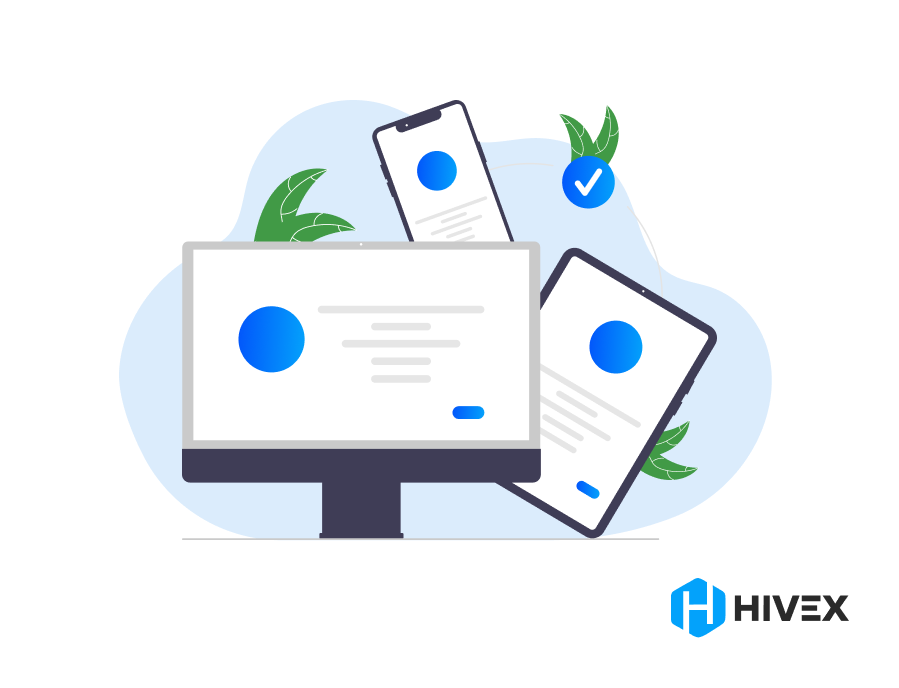
iOS development frameworks provide pre-built modules and libraries that streamline the app development process and optimize performance. These frameworks are essential for iOS developers as they offer a wide range of tools and functionalities to create robust and feature-rich applications.
Let’s explore some popular iOS frameworks in more detail:
UIKit
One of the most widely used frameworks in iOS mobile application development is UIKit. This framework provides a set of user interface components for building visually appealing and interactive iOS apps.
With UIKit, developers can easily create and manage user interfaces, handle touch events, and implement animations. It offers a wide range of UI elements such as buttons, labels, text fields, and more, making it easier to design intuitive and user-friendly interfaces.
Core Data
Another important framework for iPhone app developers is Core Data. It offers an object-oriented toolkit for managing app data persistence, making it easier to store and retrieve data.
Core Data provides a high-level interface to work with databases, allowing developers to create, update, and query data efficiently. It also supports data modeling, versioning, and migration, making it a powerful tool for managing complex data structures in iOS apps.
Core Animation
As the name suggests, Core Animation is a framework that helps create stunning animations in iOS apps. It provides a high-performance animation engine that allows developers to create smooth and visually appealing transitions, effects, and transformations.
This animation framework offers a wide range of animation options, including keyframe animations, implicit animations, and layer animations. With Core Animation, developers can bring their apps to life by adding engaging and dynamic visual effects.
React Native
Programmers use React Native for both iOS and Android development. React Native is an open-source framework that allows developers to build both iOS and Android applications. It comes with its own JavaScript library for creating user interfaces.
Flutter
Flutter is a Google UI software development kit (SKD) that can be used to develop apps for multiple platforms, including iOS apps, from a single codebase. It is based on Dart, a Google programming language.
AVFoundation
The AVFoundation framework is an audiovisual media capture, processing, and playback framework with Swift and Objective-C APIs.
Understanding these frameworks is crucial when evaluating the expertise of potential iOS developers. A skilled iOS developer should be familiar with these frameworks and be able to utilize their powerful tools effectively to enhance your app’s functionality.
Skilled developers with experience in core data, animation frameworks, push notifications, augmented reality, and complex data structures possess a technical edge that sets them apart from the competition.
iOS Development Programming Tools
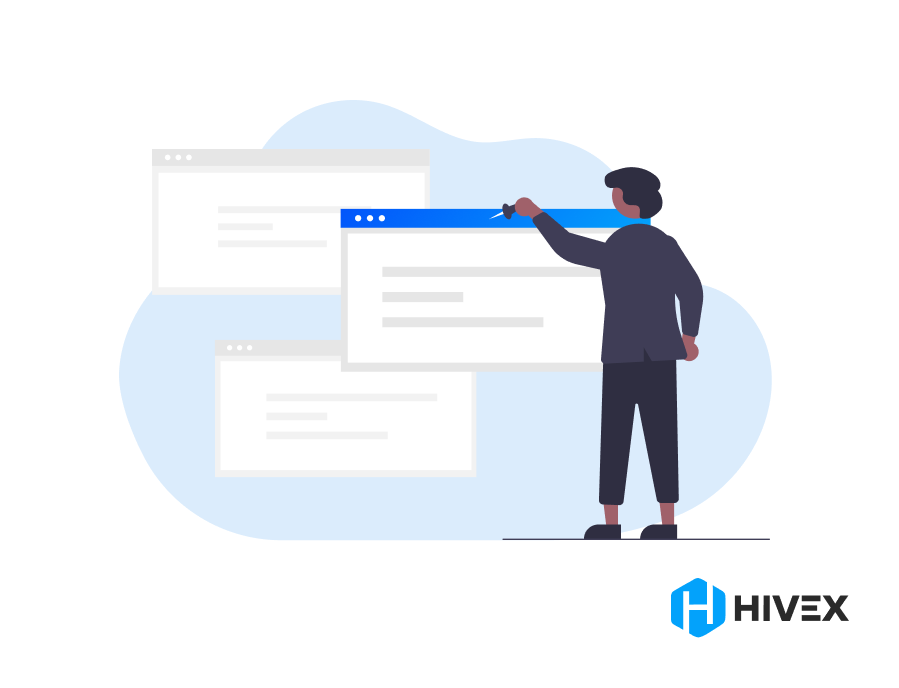
iOS development is a multifaceted process that demands a deep understanding of various programming tools and methodologies. At its core, iOS engineering revolves around writing, testing, and debugging code, tasks that are essential to creating robust and user-friendly applications for Apple’s platform.
Xcode
Xcode, Apple’s integrated development environment (IDE), is the primary tool used for iOS app development. It provides a comprehensive set of features and a user-friendly interface that simplifies the entire development process.
When it comes to mobile app development, Xcode is a powerhouse of tools and utilities that streamline the workflow. It offers a wide range of templates, allowing developers to start their projects with pre-configured settings for different types of apps. Whether you are building a game, a social media platform, or an e-commerce application, Xcode has got you covered.
One of the standout features of Xcode is its built-in code editor, which supports multiple programming languages such as Swift and Objective-C. The code editor provides syntax highlighting, code completion, and intelligent suggestions, making it easier for developers to write clean and error-free code. It also includes a powerful debugging tool that helps identify and fix issues during the development process.
iOS Simulator
Another essential tool is the iOS Simulator, which allows developers to test their app on virtual iOS devices before deploying it to real devices. The simulator provides a simulated environment that closely mimics the behavior of an actual iOS device, enabling developers to test their app’s performance, responsiveness, and compatibility across different screen sizes and resolutions.
Git
The Git version control system provides developers with a way to work together on non-linear workflows while coding. With Git, developers can work together remotely and access previous versions of the code, as well as track and record changes. Git is a version control system that facilitates collaboration and results in faster development. Many developers use Git to manage projects more efficiently.
CocoaPods
For Swift and Objective-C projects, Cocoapods can be used as a dependency manager. It contains a large number of libraries and frameworks that make it easy to integrate third-party libraries into the projects and simplify workflows.
Visual Studio Code
VSC is a code editor that supports a wide range of languages and is used commonly by iOS developers to write code. The editor is also useful for debugging and task management functions, as well as version control.
Integration Tools
Continuous integration tools like Jenkins or Travis CI play a crucial role in iOS app development. These tools automate the app build and release process, ensuring seamless collaboration among developers and timely update delivery.
With continuous integration, app developers can integrate code changes into a shared repository, run automated tests, and generate build artifacts without manual intervention. This helps in maintaining code quality, reducing the risk of introducing bugs, and speeding up the overall development cycle.
Third-Party Libraries
In addition to the aforementioned tools, iOS developers often rely on third-party libraries and frameworks to enhance their app’s functionality and user experience. These libraries provide pre-built components and modules that can be easily integrated into a mobile app, saving developers time and effort.
Popular libraries like Alamofire for networking, Realm for database management, and SnapKit for auto layout are widely used in the iOS development community.
Furthermore, Apple’s developer documentation and online resources play a vital role in iOS app development. The official documentation provides detailed information on various iOS frameworks, APIs, and best practices.
Developers can also find a wealth of tutorials, sample code, and forums online, where they can seek guidance, share knowledge, and stay updated with the latest trends and techniques in the iOS ecosystem.
iOS Developer Hiring Strategy
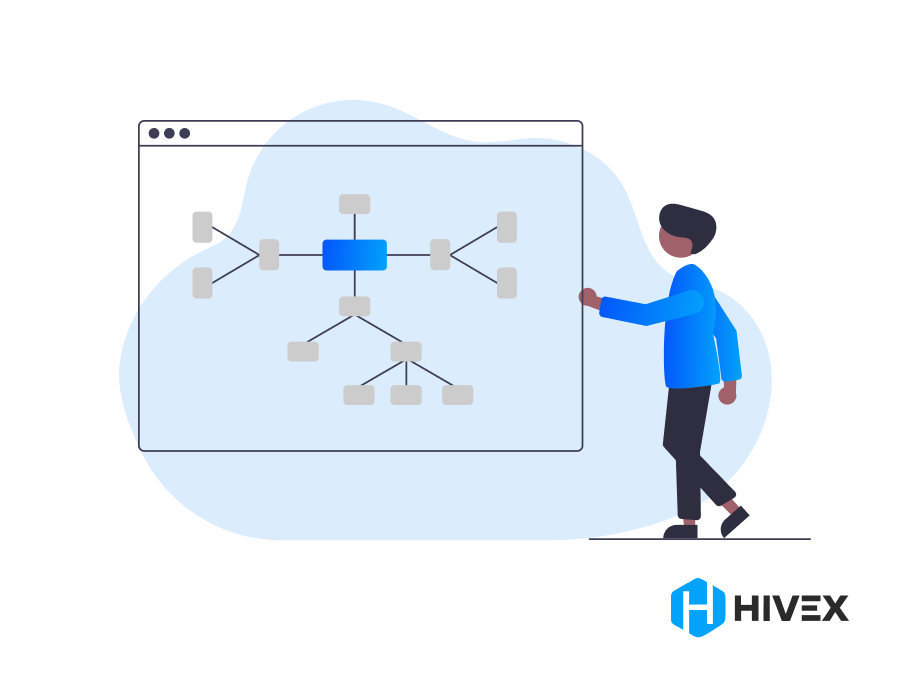
1. Define Your Project Requirements
Before you start the hiring process, it’s essential to have a clear vision of your project requirements.
Understanding what you need will help you identify the skills and expertise required for an iOS developer.
The first step to defining your iOS app requirements is to figure out what you want to accomplish.
Consider the target audience, the app’s purpose, and the specific features and functionalities you want to include.
Are you building a social media platform, an e-commerce app, or a productivity tool? Each type of app requires different skills and expertise.
Moreover, consider hiring a dedicated project manager. A project manager oversees the entire engineering process from inception to delivery, ensuring it aligns with your project requirements and managing the software development team effectively.
Once you clearly understand your project requirements, you can create a detailed project brief outlining the scope, objectives, and deliverables.
This document will serve as a roadmap for your iOS developer and ensure everyone is on the same page.
2. Identify the Skills Needed for Your Project
Identifying the specific skills needed for your project is crucial to finding the right iOS developer. Consider the type of app you want to develop and the technologies and frameworks required to build it.
For example, if you’re building a gaming app, you’ll need an iOS developer with experience in game development frameworks like SpriteKit or Unity.
On the other hand, if you’re creating a data-driven app, you’ll need someone with expertise in working with databases and integrating APIs.
By clearly defining the required skills, you can attract candidates who are well-suited to your project and ensure their contribution to its success.
3. Set Your Budget for Hiring iOS Developers
Setting a budget for hiring iOS developers is an integral part of the hiring process. Consider the level of experience you require.
Experienced developers may charge higher rates, but their expertise can save you time and resources in the long run.
They are more likely to have a deep understanding of best practices, efficient coding techniques, and the ability to handle complex challenges.
Additionally, consider the duration of your project. Will you need a full-time iOS developer or someone who can work on an on-demand basis?
Full-time app developers may require a higher budget, but they can provide dedicated attention to your project and ensure faster development.
On the other hand, hiring on-demand developers can be more cost-effective if you have a short-term project or need specific expertise for a limited period.
If you set a realistic budget, you can attract skilled iOS developers within your financial means.
Hiring Strategies Based on Company Size
Small Businesses and Startups
Budget constraints often affect small businesses and startups. Consider hiring freelance iOS developers or partnering with development agencies that offer flexible pricing models.
This approach allows you to scale your team up or down based on your project’s demands without the overhead of full-time salaries and benefits.
Medium-Sized Companies
Medium-sized companies may benefit from a mix of in-house and freelance developers. Hiring a core team of full-time iOS developers ensures the stability and continuous improvement of your app.
Supplementing this team with freelancers for specific tasks or during peak periods can provide additional flexibility and expertise.
Large Enterprises
Large enterprises typically have the resources to build and maintain a full-fledged in-house development team.
This approach ensures tight control over the development process and allows for seamless integration with other company systems and processes.
Additionally, large companies can invest in ongoing training and professional development for their developers, ensuring they stay updated with the latest technologies and best practices.
Hiring Strategies Based on Project Needs
Short-Term Projects
For short-term projects, hiring freelance iOS developers or contracting with a development agency can be the most efficient approach. These developers bring specialized skills and can start contributing quickly without the need for long-term commitments.
Long-Term Projects
Long-term projects benefit from having dedicated, full-time iOS developers. This ensures continuity, a deep understanding of the project, and ongoing optimization. Full-time developers are more likely to be invested in the success of the project and can contribute to continuous improvement over time.
Hiring Strategies Based on Budget
Limited Budget
If you have a limited budget, prioritize your needs and focus on hiring developers with the most critical skills for your project. Consider junior developers who can grow with your project, or hire freelancers for specific tasks to manage costs effectively.
Flexible Budget
With a flexible budget, you have the option to hire experienced iOS developers who can bring high-level expertise to your project. Invest in a balanced team that includes both senior and junior developers, ensuring mentorship and growth within your team.
Additionally, consider allocating a budget for ongoing training and development to keep your team updated with the latest industry trends and technologies.
By following these strategies, you can effectively hire iOS developers who match your project requirements, company size, and budget, ensuring the successful development and deployment of your iOS app.
Skills of iOS Developers to Look For
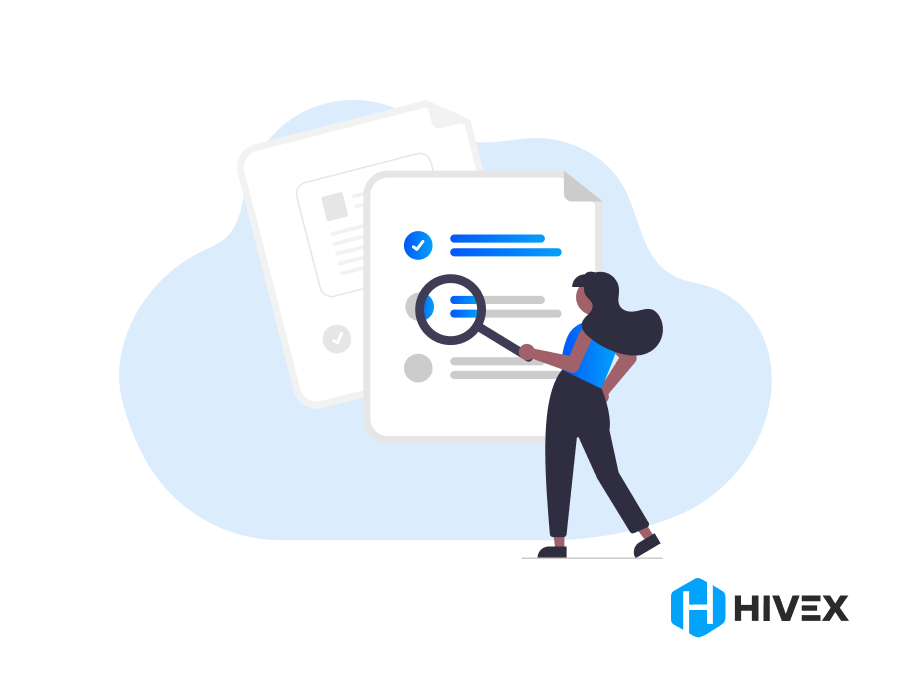
When evaluating iOS developers, certain skills and qualities are crucial for success. Here, we will break down the key skills and responsibilities of junior, mid-level, and senior iOS developers.
Junior iOS Developer
Roles and Responsibilities
Junior iOS developers are typically at the beginning of their careers. Their primary responsibilities include:
- Assisting in the development of simple features and bug fixes.
- Writing clean, maintainable code under the guidance of senior developers.
- Learning and applying coding best practices and design patterns.
- Participating in code reviews to understand feedback and improve their skills.
- Conducting basic testing and debugging.
Key Skills and Experience
- Proficiency in Swift and Objective-C: Basic knowledge of these languages is essential.
- Familiarity with iOS frameworks: Understanding of UIKit and basic frameworks.
- Knowledge of RESTful APIs: Basic understanding of how to integrate APIs.
- Version Control Systems: Basic experience with Git.
- Problem-Solving Skills: Ability to identify and resolve minor issues.
- Attention to Detail: Focus on producing clean and error-free code.
Mid-Level iOS Developer
Roles and Responsibilities
Mid-level iOS developers have a few years of experience and take on more complex tasks. Their responsibilities include:
- Developing and maintaining significant features of the app.
- Collaborating with designers and product managers to define app requirements.
- Ensuring code quality through code reviews and unit testing.
- Debugging and optimizing app performance.
- Mentoring junior developers and providing guidance.
Key Skills and Experience
- Proficiency in Swift and Objective-C: Strong knowledge and ability to write efficient code.
- Experience with iOS frameworks: Proficient in using UIKit, Core Data, and other major frameworks.
- Knowledge of RESTful APIs: Capable of integrating and working with web services.
- Version Control Systems: Proficient in using Git for version control.
- Problem-Solving Skills: Able to tackle and resolve complex issues.
- Attention to Detail: Ensuring all aspects of the app are polished and bug-free.
- Collaboration and Communication: Effective teamwork and communication skills to work with various stakeholders.
Senior iOS Developer
Roles and Responsibilities
Senior iOS developers are highly experienced and take on leadership roles. Their responsibilities include:
- Leading the development of complex and high-impact features.
- Architecting and designing app solutions.
- Ensuring the app adheres to best practices and coding standards.
- Conducting code reviews and providing constructive feedback.
- Leading and mentoring the development team.
- Keeping up with the latest industry trends and technologies.
Key Skills and Experience
- Proficiency in Swift and Objective-C: Expert-level understanding and ability to teach others.
- Experience with iOS frameworks: Extensive knowledge of UIKit, Core Data, Core Animation, and more.
- Knowledge of RESTful APIs: Advanced skills in integrating and optimizing API usage.
- Version Control Systems: Mastery of Git and branch management strategies.
- Problem-Solving Skills: Exceptional ability to solve complex and critical issues.
- Attention to Detail: Ensuring the highest quality and performance of the app.
- Collaboration and Communication: Leadership in communicating with cross-functional teams and stakeholders.
- Continuous Learning: Staying updated with the latest advancements and continuously improving skills.
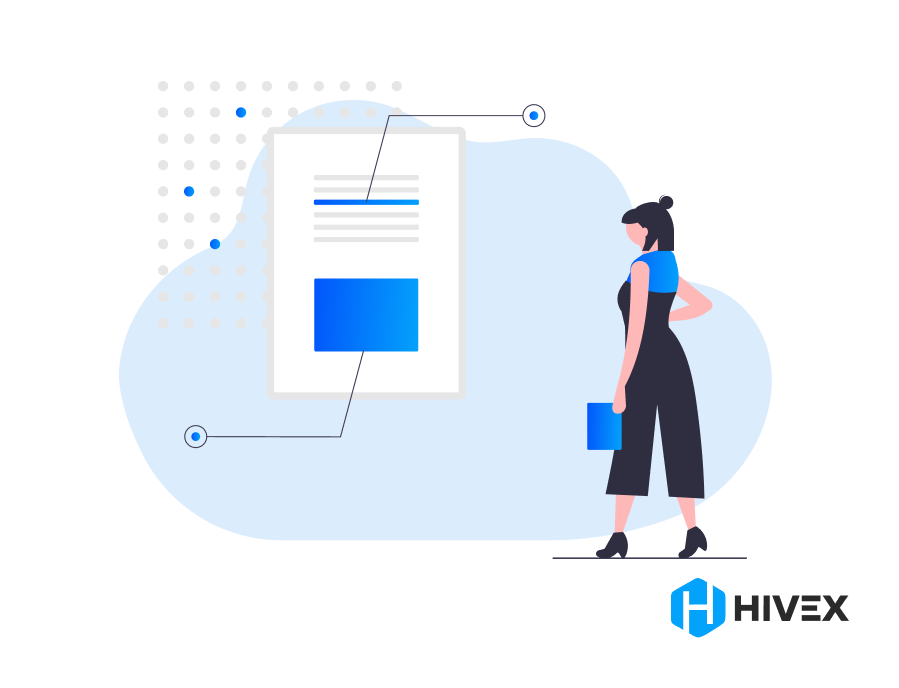
Additional Qualities of a Great iOS Developer
- Strong Problem-Solving Skills: All levels of developers need to be adept at identifying and solving issues efficiently.
- Attention to Detail: Ensuring every aspect of the app is polished and functioning correctly.
- Clean and Maintainable Code: Writing code that is easy to read, scalable, and maintainable.
- Collaboration and Communication: Effective teamwork and clear communication are essential.
- Continuous Learning: Staying updated with the latest trends and advancements in iOS development.
To ensure customers are completely satisfied, your iOS mobile applications should be of the highest quality. Encourage your iOS developers to follow Apple’s best practices and design guidelines to deliver user-friendly apps that align with Apple Store review expectations.
How to Evaluate Candidates’ Expertise
During the hiring process, it’s important to assess candidates’ technical expertise to ensure they have the required skills for iOS app development. Conducting technical interviews, coding tests, and reviewing their past projects can help gauge their programming proficiency and problem-solving abilities.
Experience with iOS Frameworks
When conducting technical interviews, it’s essential to ask candidates about their experience with specific iOS frameworks. This will provide valuable insights into their expertise and familiarity with the tools and technologies commonly used in iOS development services. For example, you could ask them about their experience with UIKit, Core Data, or SwiftUI, depending on the role requirements.
Technical Questions
In addition to assessing their knowledge of iOS frameworks, it’s also important to ask candidates in-depth technical questions related to iOS development. These questions can help evaluate their understanding of fundamental concepts and their ability to apply them in real-world scenarios.
For instance, you might ask them to explain the process of handling asynchronous operations in iOS, how they would optimize the performance of a resource-intensive app, what kind of settings they you store in your Info.plist file, or what is the difference between the Float, Double, and CGFloat data types.
Candidate portfolio review
In addition to assessing the candidates’ technical proficiency, it is important to consider their past projects as well. By examining the code they have written and the apps they have developed, you may be able to gain insight into their programming style, code quality, and problem-solving skills. To determine if they have contributed to open-source projects or if they have any personal projects that demonstrate their skills, it is advisable to check their GitHub account or portfolio.
Community involvement
A candidate’s technical expertise should also be evaluated in light of their involvement in the community. Participating actively in the iOS development community, such as contributing to forums, attending conferences, or organizing meetups, can demonstrate an individual’s willingness to learn new things and stay on top of the latest trends in the field as well as their commitment to staying on top of best practices.
In conclusion, evaluating candidates’ technical expertise for iOS app development requires a comprehensive approach.
Look for candidates with proven technical prowess and an in-depth understanding of programming languages such as Objective-C or Swift. Check for expertise in core iOS technologies like Core Data, iOS Animation Library, and Push Notifications.
By conducting technical interviews, coding tests, reviewing past projects, and considering their community involvement, you can make a well-informed decision about their suitability for the role.
Interview Questions for iOS Developers

When conducting interviews, asking the right questions can help assess candidates’ knowledge and suitability for your project.
While doing this, it’s important to cover areas such as Data, Code architectures, Languages, Frameworks, and Security.
Let’s break it down:
General questions
- Can you explain the difference between strong and weak references in Swift?
- What are the benefits of using Core Data for data persistence in iOS apps?
- How would you handle memory management in an iOS app?
- Have you worked with any third-party iOS frameworks or libraries? If yes, which ones and why did you choose them?
- How do you ensure backward compatibility when developing iOS apps?
iOS
- Can you suggest a reasonable minimum iOS deployment target?
- In the recent iOS versions, what features excited you the most?
- What is the best way to round the corners of your views?
- Can you explain what size classes are used for?
- In the case of Color or UIColor with values outside the range of 0 to 1, what happens?
Swift
- What is the best way to explain the key paths to a new Swift developer?
- What is the purpose of the #error compiler directive?
- Why would you use the final keyword? What does it do?
- Can you explain the difference between try, try?, and try! in Swift?
- How do result builders work in Swift, and when should they be used?
Data
- How do Swift classes and structures differ?
- How does the Codable protocol work?
- Could you explain the difference between map() and compactMap()?
- Where might UUIDs be used?
- How do one-sided ranges work and when would they be useful?

Frameworks
- What is the difference between CloudKit and Core Data?
- How can UserDefaults be used?
- What are your experiences with StoreKit?
- What is the difference between GameplayKit and ReplayKit?
- Name at least three distinct subclasses of CALayer
Code Architectures and App Design Patterns
- In what ways does Apple’s platform use MVC and MVVM?
- How would you explain protocol-oriented programming to a new iOS developer?
- Do you have any experience with functional programming?
- On Apple’s platforms, what is KVO and how does it work?
- Can you explain what phantom types are and when they would be useful?
Security
- Which types of malware threaten iOS devices?
- How to securely store sensitive information on iOS using the Keychain Services API?
- How can we test our iOS app for security vulnerabilities before releasing it?
- What are the best practices for handling sensitive client data on iOS?
- How can we protect enterprise data on iOS devices?
These questions will help you assess candidates’ problem-solving skills, technical knowledge, and ability to handle real-world scenarios in iOS app development.
Where to Hire iOS Developers
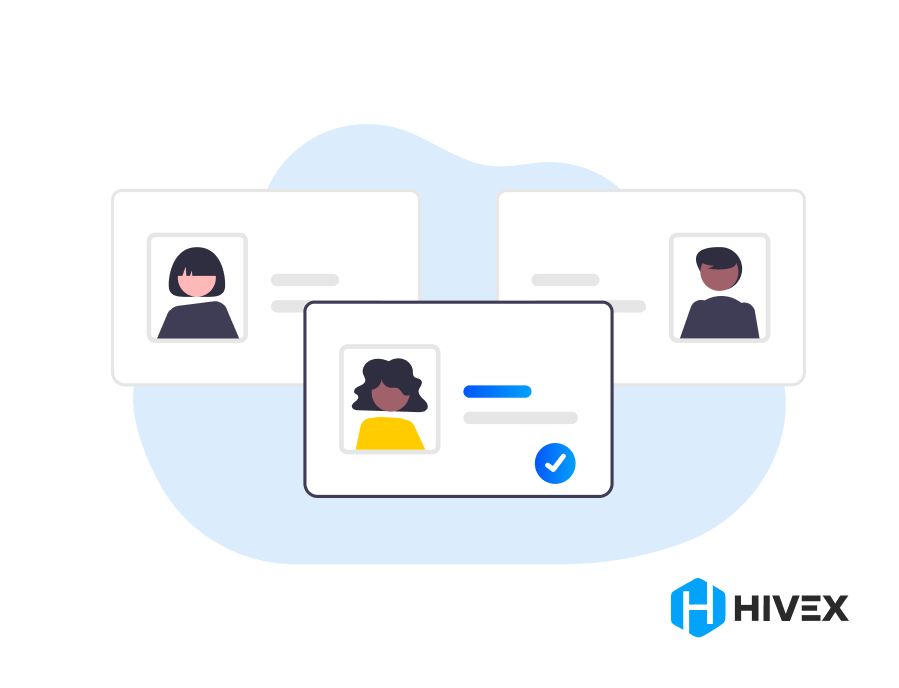
There are several avenues to finding experienced iOS developers. Each method has its advantages and can help you attract a diverse pool of talented candidates:
- Online platforms with expert-vetted talent and portals like LinkedIn, Indeed, and Stack Overflow allow you to connect with the best remote iOS developers.
- Networking with other industry professionals, attending iOS development meetups, and participating in online developer communities can help you find top iOS developers.
- Hiring an iOS app development agency or outsourcing the project to experienced iOS developers can save time and ensure high-quality results.
Consider combining multiple channels to increase your chances of finding the right developer for your project.
Conclusion
Hiring experienced iOS developers is crucial for building successful apps that provide a seamless user experience and drive business growth.
By understanding the importance of iOS development, assessing candidates’ technical skills, and leveraging the right hiring channels, you can ensure that your project is in capable hands.
When you hire an iOS developer, you are not just looking for someone to write code. You need a skilled software engineer who can understand your vision, navigate the complexities of the Apple App Store, and deliver a great app that meets your business needs.
The right iOS app developers will have a deep knowledge of development languages like Swift and Objective-C and be proficient in key frameworks like UIKit and Core Data.
To find the best mobile app developers, conduct thorough technical interviews. Assess their problem-solving abilities, attention to detail, and experience with app services. Let them tell you about their past projects, the challenges they’ve faced, and how they overcame them. This will give you a clear understanding of their capabilities and how they can contribute to your project.
An experienced Apple developer can provide ongoing support, updates, and improvements to your app, ensuring it remains competitive in the dynamic market. They will also stay updated with the latest trends and best practices in building apps, which can be invaluable for your business.
With the right iOS development team, you can bring your app idea to life and create a valuable addition to your business.
Whether you are a startup looking to make a mark or an established company aiming to expand your digital presence, having a team of skilled iOS app developers will ensure your app stands out in the crowded Apple App Store.
Investing in the right team will help you manage development costs effectively while delivering a high-quality app that delights your users and drives business growth.
Carefully select and hire an iOS developer who matches your project requirements and can help you achieve your goals.
By following this guide and paying attention to the key aspects of hiring, you can build a successful app that adds significant value to your business.
Start your journey today by finding the perfect iOS app developers with Hivex who can turn your vision into reality.


